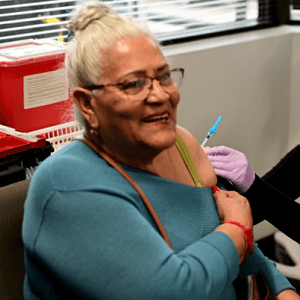Despite gains from the Affordable Care Act, Latino adults continue to face steep health coverage gaps, according to a Commonwealth Fund report. While the uninsured rate for Latinos dropped from 33% to 18% since the law’s passage, more than half of Hispanic/Latino adults remain inadequately insured.
The report defines inadequate coverage as either being uninsured at some point during the year or having insurance that leaves families unable to afford necessary care. Fifty-five percent of Latinos fall into this category, compared with 42% of non-Hispanic adults. Much of the disparity is driven by persistent uninsurance: more than a third of Latinos reported going without coverage for all or part of the year, nearly double the rate of other groups.
High costs are the main barrier. More than half of Latino adults said they skipped filling prescriptions, follow-up tests, or even doctor visits because they couldn’t afford them. Two out of five who delayed care said their health worsened as a direct result. Thirty percent reported carrying medical or dental debt, forcing them to cut back on rent, food, or medications.
The data underscores how financial strain translates into worse health outcomes. Latinos are disproportionately affected by chronic disease and are more likely to experience serious illness when care is delayed. Policy recommendations include extending pandemic-era subsidies for marketplace plans, lowering out-of-pocket costs, and ensuring Medicaid coverage in states that have not expanded eligibility. Without stronger protections, millions of Latinos risk falling through the cracks of the U.S. health care system.
See: “Hispanic/Latino Adults Lack Adequate, Affordable Health Insurance Coverage” (December 17, 2024)


